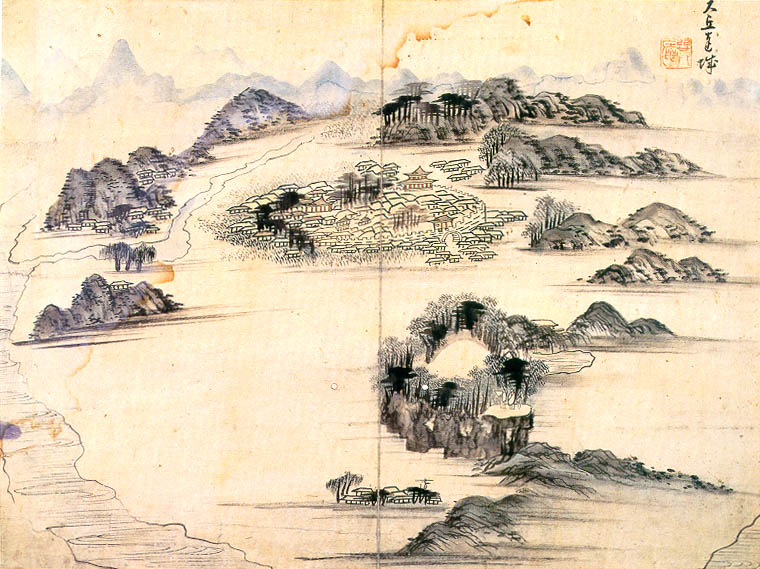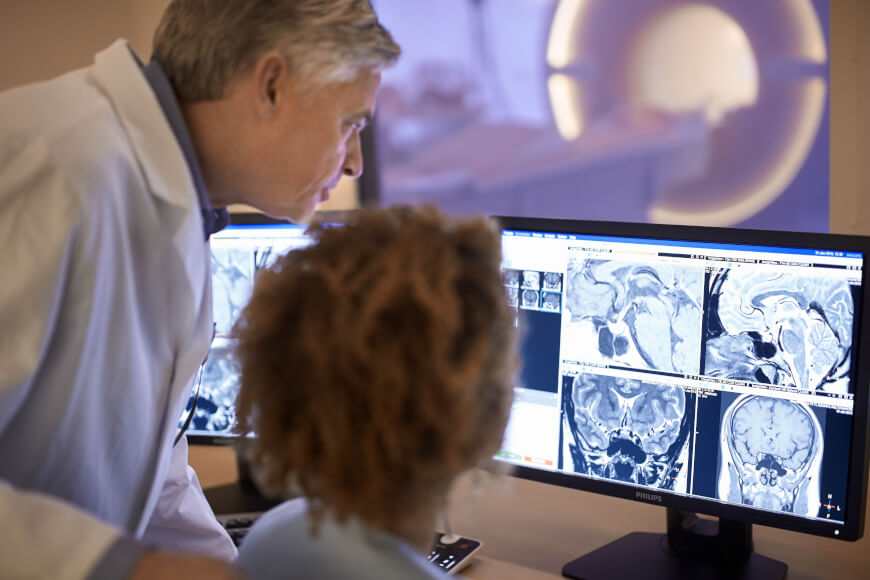|
Daegu Health College
Daegu Health College provides medical training to aspiring professionals in Daegu metropolitan city, South Korea. The current president is Nam Seong-hui (남성희). About 100 instructors are employed. Academics The courses of study are divided among five divisions: Health (which includes fields such as clinical pathology and radiology), Nursing, Medical Industry, Social Work, and Arts. History The college opened its doors as Daegu Technical School of Health (대구보건전문학교) in 1971. Its status was raised to that of a technical college in 1979, and in 1998 it became simply Daegu Health College. See also *List of colleges and universities in South Korea *Education in South Korea Education in South Korea is provided by both public schools and private schools. Both types of schools receive funding from the government, although the amount that the private schools receive is less than the amount of the state schools. South ... External linksOfficial school websit ... [...More Info...] [...Related Items...] OR: [Wikipedia] [Google] [Baidu] |
Daegu
Daegu (, , literally 'large hill', 대구광역시), formerly spelled Taegu and officially known as the Daegu Metropolitan City, is a city in South Korea. It is the third-largest urban agglomeration in South Korea after Seoul and Busan; it is the third-largest List of special cities of South Korea#List of metropolitan cities, official metropolitan area in the nation with over 2.5 million residents; and the second-largest city after Busan in the Yeongnam Regions of Korea, region in southeastern Korean Peninsula. It was overtaken by Incheon in the 2000s, but still it is said to be the third city, according to the "Act on the Establishment of Daegu City and Incheon City" (Act No. 3424 and April 13, 1981). Daegu and surrounding North Gyeongsang Province are often referred to as Daegu-Gyeongbuk, with a total population over 5 million. Daegu is located in south-eastern Korea about from the seacoast, near the Geumho River and its mainstream, Nakdong River in Gyeongsang-do. ... [...More Info...] [...Related Items...] OR: [Wikipedia] [Google] [Baidu] |
South Korea
South Korea, officially the Republic of Korea (ROK), is a country in East Asia, constituting the southern part of the Korea, Korean Peninsula and sharing a Korean Demilitarized Zone, land border with North Korea. Its western border is formed by the Yellow Sea, while its eastern border is defined by the Sea of Japan. South Korea claims to be the sole legitimate government of the entire peninsula and List of islands of South Korea, adjacent islands. It has a Demographics of South Korea, population of 51.75 million, of which roughly half live in the Seoul Capital Area, the List of metropolitan areas by population, fourth most populous metropolitan area in the world. Other major cities include Incheon, Busan, and Daegu. The Korean Peninsula was inhabited as early as the Lower Paleolithic period. Its Gojoseon, first kingdom was noted in Chinese records in the early 7th century BCE. Following the unification of the Three Kingdoms of Korea into Unified Silla, Silla and Balhae in the ... [...More Info...] [...Related Items...] OR: [Wikipedia] [Google] [Baidu] |
Clinical Pathology
Clinical pathology is a medical specialty that is concerned with the diagnosis of disease based on the laboratory analysis of bodily fluids, such as blood, urine, and tissue homogenates or extracts using the tools of chemistry, microbiology, hematology, molecular pathology, and Immunohaematology. This specialty requires a medical residency. Clinical pathology is a term used in the US, UK, Ireland, many Commonwealth countries, Portugal, Brazil, Italy, Japan, and Peru; countries using the equivalent in the home language of "laboratory medicine" include Austria, Germany, Romania, Poland and other Eastern European countries; other terms are "clinical analysis" (Spain) and "clinical/medical biology (France, Belgium, Netherlands, North and West Africa). Licensing and subspecialities The American Board of Pathology certifies clinical pathologists, and recognizes the following secondary specialties of clinical pathology: * Chemical pathology, also called clinical chemistry * ... [...More Info...] [...Related Items...] OR: [Wikipedia] [Google] [Baidu] |
Radiology
Radiology ( ) is the medical discipline that uses medical imaging to diagnose diseases and guide their treatment, within the bodies of humans and other animals. It began with radiography (which is why its name has a root referring to radiation), but today it includes all imaging modalities, including those that use no electromagnetic radiation (such as ultrasonography and magnetic resonance imaging), as well as others that do, such as computed tomography (CT), fluoroscopy, and nuclear medicine including positron emission tomography (PET). Interventional radiology is the performance of usually minimally invasive medical procedures with the guidance of imaging technologies such as those mentioned above. The modern practice of radiology involves several different healthcare professions working as a team. The radiologist is a medical doctor who has completed the appropriate post-graduate training and interprets medical images, communicates these findings to other physicians b ... [...More Info...] [...Related Items...] OR: [Wikipedia] [Google] [Baidu] |
List Of Colleges And Universities In South Korea
This is a list of institutions of higher education in South Korea. Quick index __NOTOC__ A * Agricultural Cooperative College – Goyang, Gyeonggi * Ajou Motor College – Boryeong, South Chungcheong * Ajou University – Suwon, Gyeonggi * Andong Institute of Information Technology – Andong, North Gyeongsang * Andong National University – Andong, North Gyeongsang * Andong Science College – Andong, North Gyeongsang *Ansan University – Ansan, Gyeonggi * Ansung Polytechnic College – Anseong, Gyeonggi * Anyang University – Anyang, Gyeonggi *Asan Information and Technology Polytechnic College – Asan, South Chungcheong * Asia LIFE University – Daejeon * Asia United Theological University – Seoul and Yangpyeong County B ''See also under P'' * Baekseok Arts University – Seoul * Baekseok Culture University – Cheonan, * Baekseok University - Cheonan, South Chungcheong * Baewha Women's University – Seoul *Berea University of Graduate Studies – Seoul * Bu ... [...More Info...] [...Related Items...] OR: [Wikipedia] [Google] [Baidu] |
Education In South Korea
Education in South Korea is provided by both public schools and private schools. Both types of schools receive funding from the government, although the amount that the private schools receive is less than the amount of the state schools. South Korea is one of the top-performing OECD countries in reading, literacy, mathematics and sciences with the average student scoring about 519, compared with the OECD average of 493, which ranks Korean education at ninth place in the world. The country has one of the world's highest-educated labor forces among OECD countries. South Korea is well known for its high standards about education, which has come to be called "education fever". The nation is consistently ranked amongst the top for global education. Higher education is a overwhelmingly serious issue in South Korean society, where it's viewed as one of the fundamental capstone of South Korean life. Education is regarded as a high priority for South Korean families, as success in edu ... [...More Info...] [...Related Items...] OR: [Wikipedia] [Google] [Baidu] |
Universities And Colleges In Daegu
A university () is an institution of higher (or tertiary) education and research which awards academic degrees in several academic disciplines. ''University'' is derived from the Latin phrase ''universitas magistrorum et scholarium'', which roughly means "community of teachers and scholars". Universities typically offer both undergraduate and postgraduate programs. The first universities in Europe were established by Catholic Church monks. The University of Bologna (), Italy, which was founded in 1088, is the first university in the sense of: *being a high degree-awarding institute. *using the word ''universitas'' (which was coined at its foundation). *having independence from the ecclesiastic schools and issuing secular as well as non-secular degrees (with teaching conducted by both clergy and non-clergy): grammar, rhetoric, logic, theology, canon law, notarial law.Hunt Janin: "The university in medieval life, 1179–1499", McFarland, 2008, , p. 55f.de Ridder-Symoens ... [...More Info...] [...Related Items...] OR: [Wikipedia] [Google] [Baidu] |
1971 Establishments In South Korea
* The year 1971 had three partial solar eclipses (Solar eclipse of February 25, 1971, February 25, Solar eclipse of July 22, 1971, July 22 and Solar eclipse of August 20, 1971, August 20) and two total lunar eclipses (February 1971 lunar eclipse, February 10, and August 1971 lunar eclipse, August 6). The world population increased by 2.1% this year, the highest increase in history. Events January * January 2 – 66 people are killed and over 200 injured 1971 Ibrox disaster, during a crush in Glasgow, Scotland. * January 5 – The first ever One Day International cricket match is played between Australia and England at the Melbourne Cricket Ground. * January 8 – Tupamaros kidnap Geoffrey Jackson, British ambassador to Uruguay, in Montevideo, keeping him captive until September. * January 9 – Uruguayan president Jorge Pacheco Areco demands emergency powers for 90 days due to kidnappings, and receives them the next day. * January 12 – The landmark United ... [...More Info...] [...Related Items...] OR: [Wikipedia] [Google] [Baidu] |



